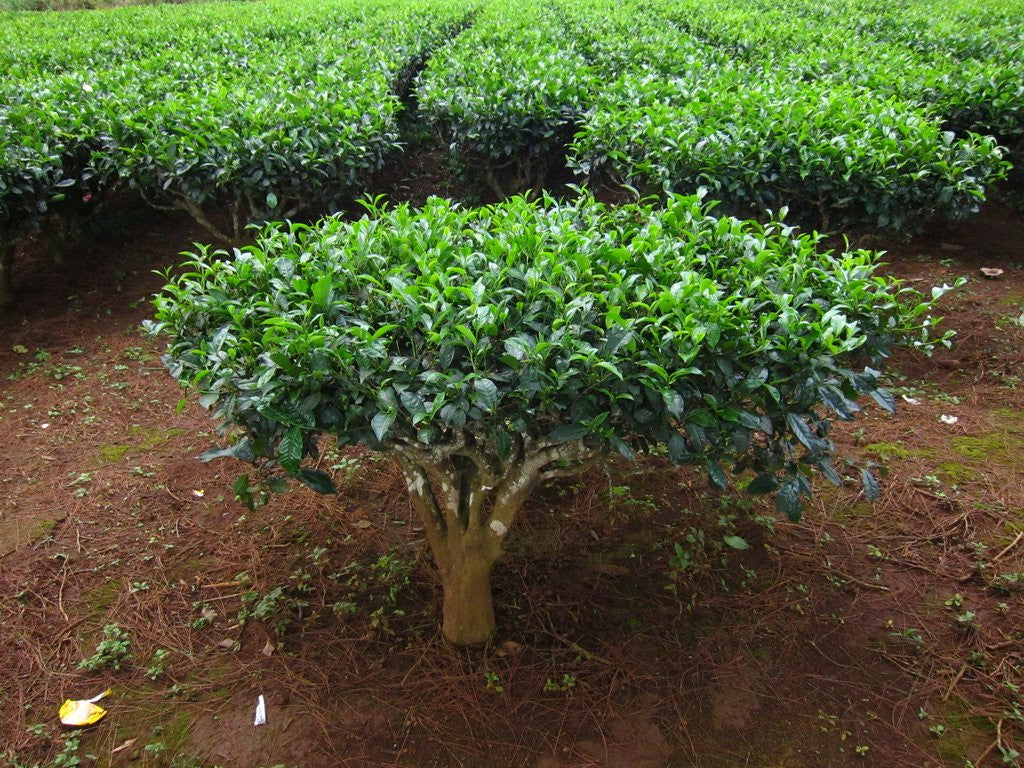Everyone knows what tea is, but whenever I ask people to define "tea," I usually get something like "...ummmm hot leaf juice?"
The truth is, "hot leaf juice" is actually pretty close to the true definition of tea. It's so close that even some of the biggest tea retailers in the world have gone as far as labeling any leaf you brew in water as "tea." The biggest and most common infraction I see against tea is the phrase "herbal tea."
My friends, I am here today to tell you that there is no such thing as "herbal tea." Any retailer or cafe that says otherwise is wrong, and there is more to tea than just the hot juice from leaves.

Is this tea? I DON'T THINK SO!
To understand the true definition of tea, you need to know one simple fact that many tea drinkers surprisingly do not know: All tea comes from the same plant. Yhup. White tea, green tea, black tea... all tea types started out as the same little green leaf on the bush. That plant is called Camellia sinensis. Learn it and know it well, because the Camellia sinensis is the foundation for all tea. Tea types (like green and black for example) are determined by how the Camellia sinensis plant is processed (more on this in later blog posts).

The Camellia sinensis in all of its glory
Now that we know all tea is produced from the Camellia sinensis plant, the true definition of tea becomes very clear: Tea is the processed leaves of the Camellia sinensis plant, and a beverage derived from those leaves. Basically: if it ain't got the Camellia sinensis plant, it ain't tea.
So if it ain't tea, what is it? Any beverage made from a variety of botanicals (flowers, fruit, leaves, etc) is referred to in the speciality tea world as a tisane (pronounced: tee san). Examples of tisanes include chamomile, peppermint, hibiscus, lavender, and...umm... "Apple Pie à la Mode" (yikes!). Many of you may be use to the common but inaccurate phrase "herbal tea," but now I am asking you, as newly enlightened tea enthusiasts, to be careful to differentiate between true tea made from the Camellia sinensis plant and everything else.
Now I know what you're thinking- "If anyone can call anything tea, how am I suppose to know if what I am drinking is really derived from the Camellia sinensis plant?" Good question. There are a few things that you can look for to determine if what you're looking at is really tea, and I have generously outlined them here:
- Ignore the title of the product. Accept the fact that it's easier for tea producers and marketers to make inaccurate generalizations than it is to inform you about what you're really putting in your body.
- If it is "Caffeine Free," it's a tisane. The Camellia sinensis naturally has caffeine in it, which means that all teas are naturally caffeinated. Tea can also be "decaffeinated," but it is best to avoid these teas altogether because they a) still have caffeine in them and b) taste nasty. If you are someone who cannot or does not want to drink caffeine, tisanes are for you.
- Look at the list of ingredients. The only thing in tea is...well... tea. You can blend tea with other ingredients like lemon or rose hips, but "tea" will always be listed as an ingredient in tea. It's that simple.

- Tea is the processed leaves of the Camellia sinensis plant and the beverage derived from those leaves
- Everything else is called a tisane
- "Herbal tea" is a lie
At Leaf & Bean, we make the careful distinction between tea and tisane. Our teas are sourced from all over the world and have to meet up to my high standards for quality and respect for tradition. Our tisanes are produced and blended by me here in New Orleans. All the ingredients that we use for our tisanes come from local New Orlean's gardens as well. Our first tisane, a lovely peppermint from Southbound Gardens, will be hitting the website very soon!
Regards,
Charles
Hot Leaf Juice Enthusiast, Leaf & Bean

